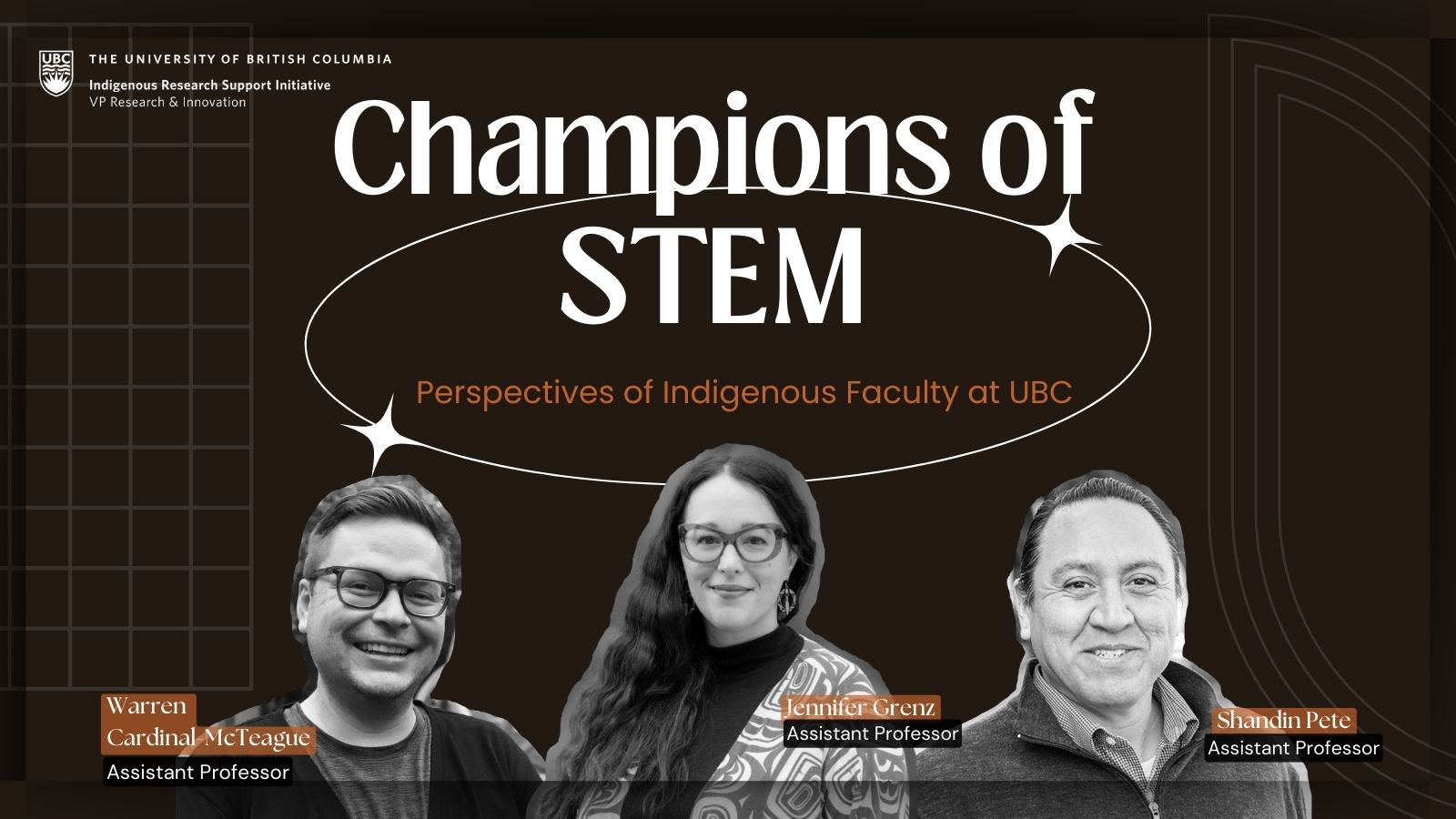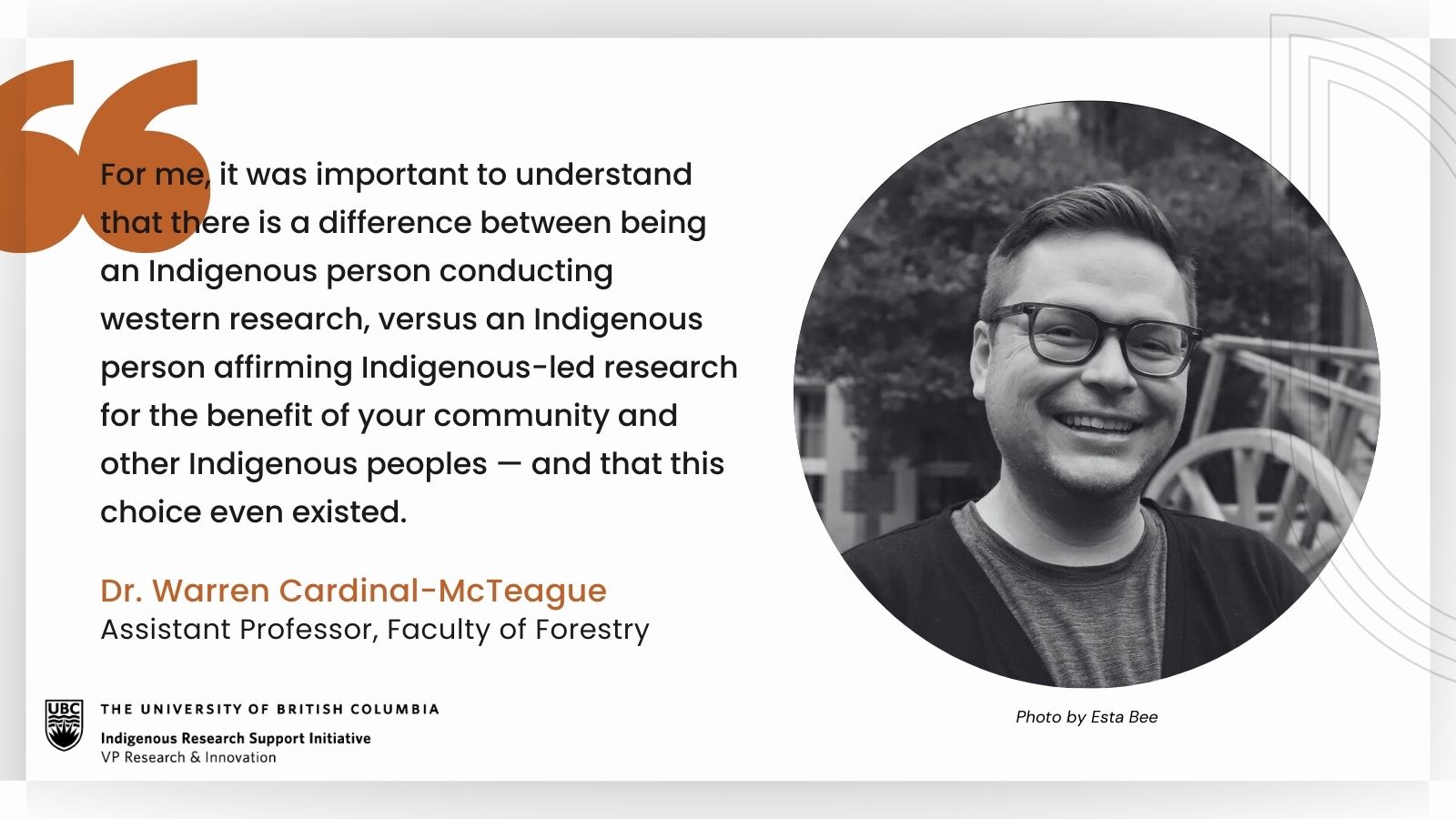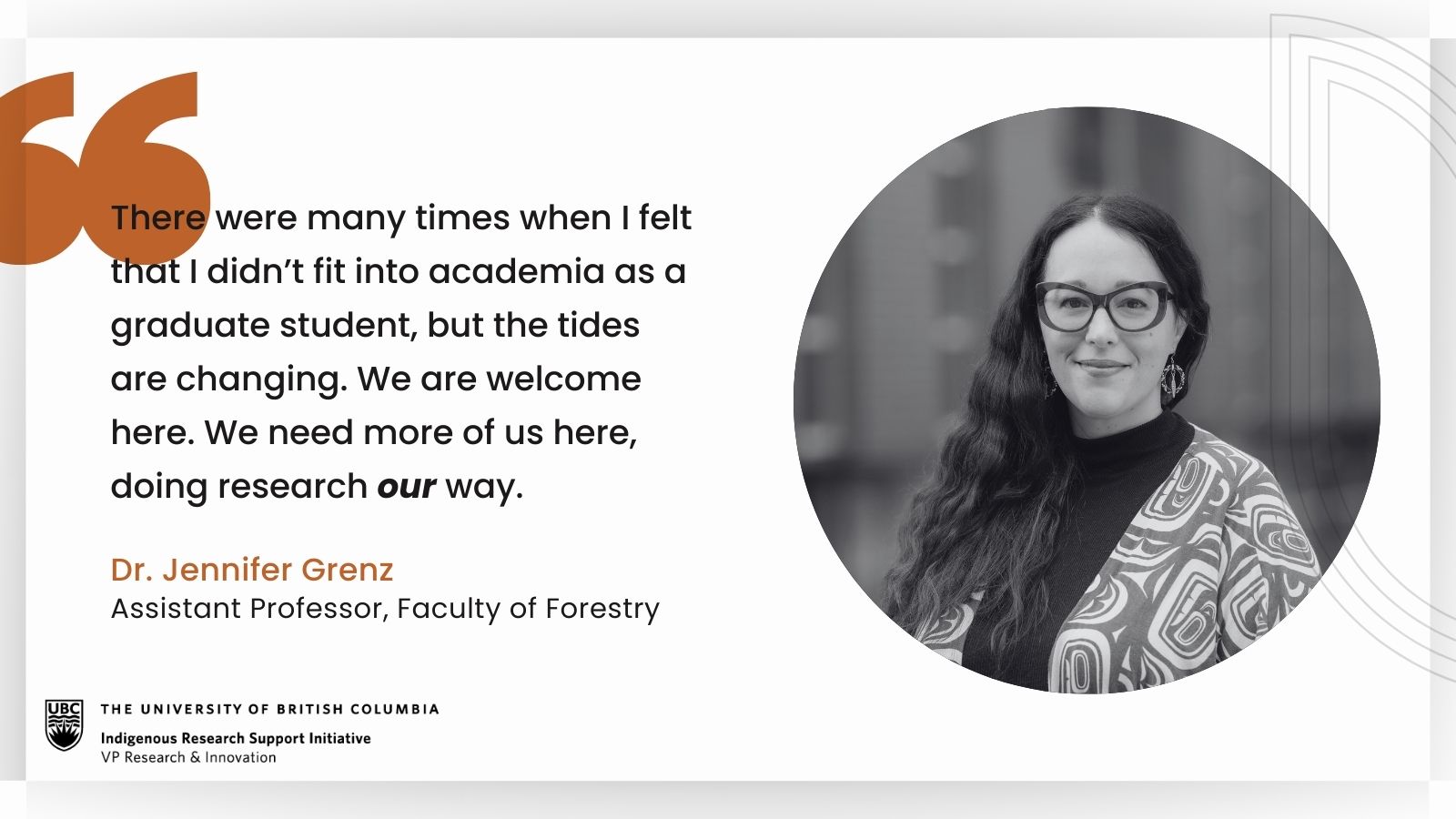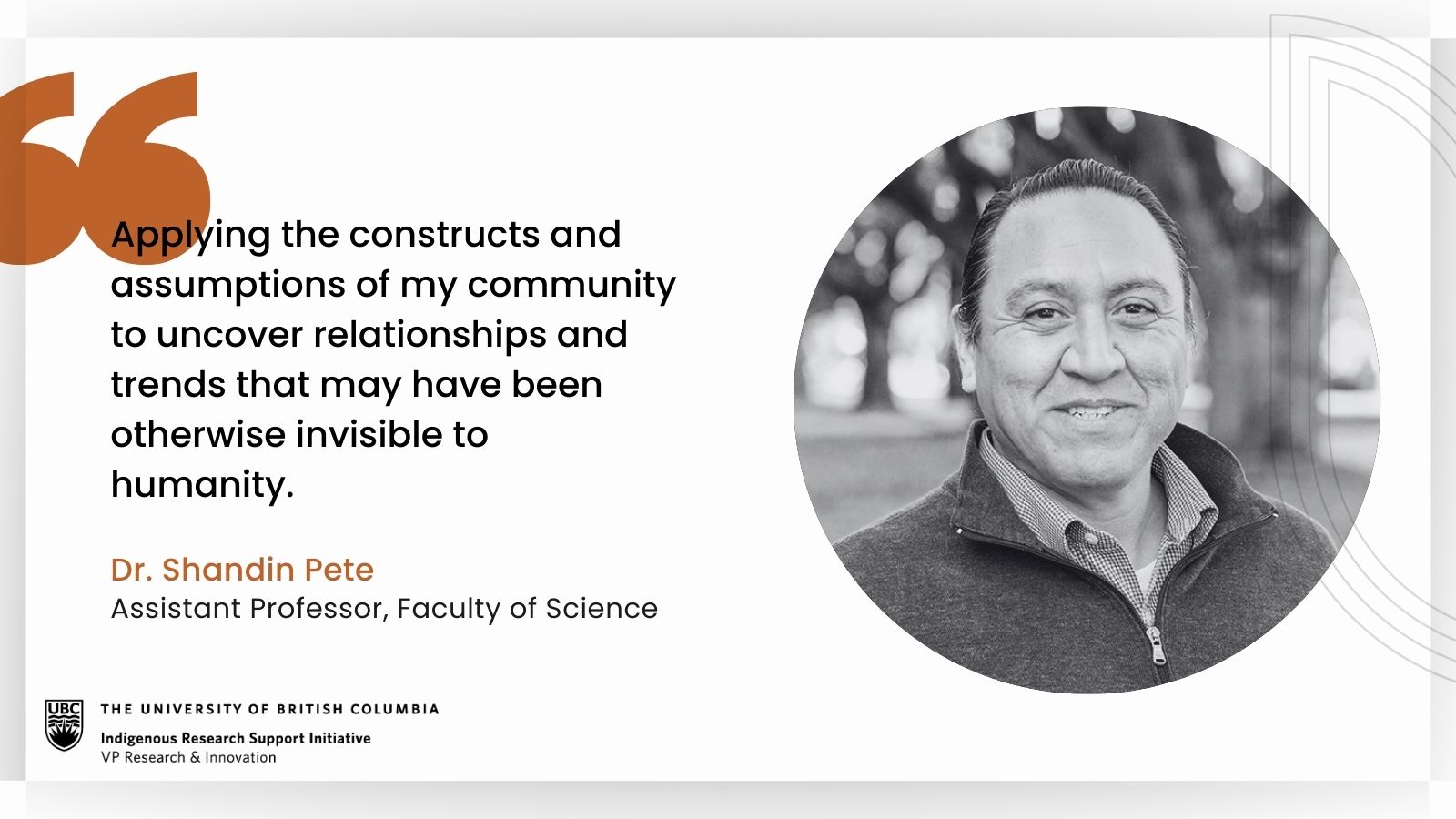
In the realm of academia, where knowledge intertwines with aspiration, three exceptional Indigenous faculty members at the University of British Columbia (UBC) have been crafting their own narratives of success, resilience, and enlightenment. Dr. Warren Cardinal-McTeague, Dr. Jennifer Grenz, and Dr. Shandin Pete are not just distinguished in their fields of expertise within STEM; they are also trailblazers whose journeys are marked by an unwavering commitment to both their Indigeneity and their academic pursuits.
In this blog post, UBC IRSI embarks on an insightful conversation with these remarkable scholars, delving into their experiences, observations, and aspirations. Their candid responses provide a profound glimpse into the nuanced world of Indigenous faculty members in STEM at UBC, painting a vivid picture of challenges, opportunities, and wisdom gained along the way.

What advice would you give to other Indigenous individuals considering a career in academia or specifically in STEM? How can they navigate the challenges they may face and find success in their chosen field?
There’s so much advice that comes to mind, but a common theme is to learn to think critically about colonialism and how it relates to your field of study. Western academia and STEM are rooted in colonial enterprise and the displacement and abuse of Indigenous peoples — yet, these dark legacies are rarely included in post-secondary programs. A good starting point is to take a course on Indigenous studies and technoscience, one that centers on the power struggle between Indigenous sovereignty and the settler colonial state. A formal course would help solidify these concepts as well as give you the language needed to discuss and apply them to your field of study.
For context, I studied botany and the evolutionary history of plants exclusively from Western perspective. It wasn’t until I attended the Summer internship for Indigenous peoples in Genomics (SING) Canada in 2019 that I was able to articulate the numerous issues I was experiencing as a Métis and Cree scholar in STEM (e.g., the historical and ongoing erasure of Indigenous scientific knowledge, to say the least). Since then, my career has shifted towards co-producing research with Indigenous communities and applying Indigenous data sovereignty principles to biological collections. My work now prioritizes Indigenous peoples and the ability to govern our own scientific goals, rather than treat Indigenous peoples as a source of knowledge for the benefit of Western researchers.
It took a long time for me to reconcile my love and passion for plants with Western academic research. For me, it was important to understand that there is a difference between being an Indigenous person conducting Western research (and upholding or operating through colonial frameworks), versus an Indigenous person affirming Indigenous-led research for the benefit of your community and other Indigenous peoples — and that this choice even existed.
-Dr. Warren Cardinal-McTeague

There were many times when I felt that I didn’t fit into academia as a graduate student, but the tides are changing. We are welcome here. We need more of us here, doing research our way. There are still challenges, but now as a professor, there are days where I cannot believe that my job is to work alongside Indigenous communities as an Indigenous co-researcher to bring healing to their lands, to work according to shared values, and to fulfill community needs. To get to be part of the reclamation and revitalization of traditional food systems is among the greatest gifts of my life. Bringing together knowledge systems and the tools of the “new” and “old” ancestors for greater good, and working with Indigenous and ally students to reclaim and adapt traditional land stewardship- this is the path forward in a changing climate. The challenges of being in STEM and building bridges of understanding between differing worldviews are worth it because every day the students, communities, and our research give me hope for a better future. Together.
-Dr. Jennifer Grenz

The most (inspirational/motivational/beautiful) thing about Indigenous-led research is…
Applying the constructs and assumptions of my community to uncover relationships and trends that may have been otherwise invisible to humanity
In what ways do you see UBC addressing the needs and concerns of Indigenous faculty in STEM? Are there any initiatives or programs that you find particularly impactful?
I believe UBC continues to strived to meet the needs of Indigenous scholarship. Much of the need that UBC can address of Indigenous scholarship hinges on the ability of Indigenous scholars ability to advance our own understand of the world within the interface of knowledge production in our respective communities and academics. The UBC Indigenous Strategic Plan and their Indigenous Strategic Initiative funding have been a great support to advance this scholarship.
As a new Indigenous faculty member, what steps do you believe UBC should take to enhance Indigenous representation and participation in STEM fields? How can the university better support Indigenous students and faculty in these areas?
UBC can further invest in recruiting more Indigenous STEM faculty to increase the diversity of thought in Indigenous science scholarship. UBC can further support novel research that may otherwise be viewed as on the fringe of academic science while also supporting more opportunities to disseminate and advance Indigenous science through coursework.
What advice would you give to other Indigenous individuals considering a career in academia or specifically in STEM? How can they navigate the challenges they may face and find success in their chosen field?
I would advise rising Indigenous scholars to develop equally their Indigenous cultural knowledge along with their academic knowledge. A strong cultural foundation in their community will always provide an backdrop to any achievement they may make while inherently serving a need in their communities.
What message would you have for your future self about the time you’re living in now?
I would tell myself to trust that everything will always work out in the end and that time spent with family should always be integrated into the work you do.
-Dr. Shandin Pete
